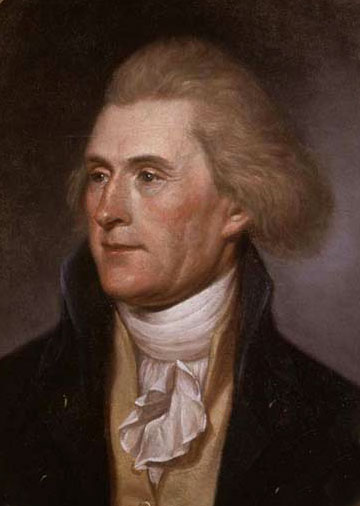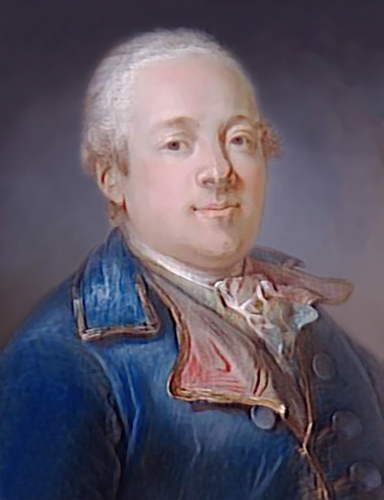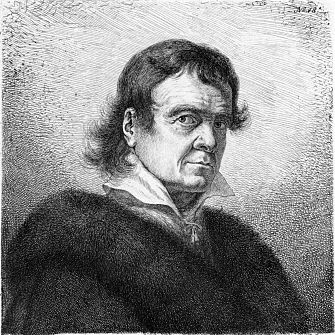Chapter 5: End of the Holy Roman Empire
"Wir werden nie einreichen."
- Franz Reinhard von Kreuznach, Führer der Rheinbund
The fall of the Holy Roman Empire had become an inevitability after a certain point of no return. After the rise of the French Republic and the detestable Consul Daniau, the Volk of Germany seemed on edge. A combination of things gave way to the collapse of the ancient Empire.
Barring the already known consequential problems of religious tensions and temporal conflicts over territory and political power, the rise of Franz Reinhard von Kreuznach, resident of the town of Bad Kreuznach in the Die Pfalz, is most attributed to the fall of the Reich in the immediate.
At age 23, in 1789, his hometown was occupied by French soldiers in their invasion of the Holy Roman Empire. Seeing his father shot by a French soldier and his home destroyed, Franz fled north to Köln, where he took up his place, calling to assembly a resistance militia.
In the intervening time, he began to gather and train a militia as the standard armies of the Empire slowed France's sweep into the German Rhineland. The French arrived in Köln in 1793, and laid siege to the town, hoping to take it. The Archbishop, already weakened in power by the fall of Rome to Napoleone, was killed after he was ambushed by French soldiers. With a power vacuum, Franz's militia seized Köln and rallied against France, using connections with hold out lords across the "Rhine-Maas" region. France held well into 1795, but even after the fall of the United Provinces, they were unable to continue their attack on Köln, which they lifted in 1796.
After this event, Franz ordered the army to begin marching against France, which they did, scoring a series of minor victories outside Cologne into early 1797. A limited number of victories scored by the Cologne Assembly put France's invasion of the Holy Roman Empire into the periphery, but soon, Consul Daniau gained two allies amongst the counter-revolutionaries, to further both nation's glory and power.
The Electorate of Bavaria and the Electorate of Saxony, looking to strike and expand their political power at the expense of their Holy Roman overlords, agreed to a secret pact with Daniau to advance his cause. In exchange for the west bank of the Rhine, Bavaria and Saxony would be free to impose whatever terms they wished upon the German states, establishing a new order.
The traitorious Wittelsbach and Wettin dynasties launched their attack upon Austria and Prussia in early 1797, hoping to distract their armies, giving Daniau time to defeat his enemies. However, further set backs broke the man's political capital even more so. Napoleone and his commanders scored a string of victories in eastern Savoy.
Napoleone's armies continued to inflict heavy damage on France, however, France still maintained complete political control of Spain. A most interesting situation was starting to rise from this. After the fall of Spain, most of the Spanish colonies now had no motherland to answer to. After some period of time of deliberation, Spain's Latin American states made a final decision in mid-1797.
New Granada declared it's submission to Spain over, and ratified the establishment of a separate Kingdom of New Granada. The viceroyalty of Peru swore fealty to the New Granadan crown, and the New Granada convention assembled to debate on who they would invite to be their new King. They ended up electing Infante Carlos, son of Charles IV, as King. Carlos was only 11 at the time, and in 1799, was crowned after Charles IV gave his assent to the idea.
Rio de la Plata did a similar move, dissolving it's colonial ties and declaring itself an independent monarchy, inviting a local noble, Agustin de Espinoza, to lead them. Agustin I, King of La Plata, was crowned in 1798 to much fanfare in the newly minted capital city of La Plata, Buenos Aires.
The remainder of Spain's colonies, namely, the huge imperial state named New Spain, remained loyal, and instead invited the King of Spain to come to New Spain and become the Emperor of Mexico, a more local and appropriate title. With assistance from the Portuguese navy, and the British navy, the King of Spain, Charles IV, left off to Mexico, and was later coronated Emperor Charles IV of the Mexican Empire in 1799.
The massive unraveling of French fortunes began in rapid succession in 1799 to 1801. Napoleone's armies advanced relentlessly, cutting down France; France began to retreat from Spain, leaving behind destruction as Portugal advanced. France's retreat to the Pyrenees effectively rendered the entirety of the Peninsular War moot at the start of 1800. This, combined with Napoleone's rapid reconquest of Savoy in the name of Rome, as well as the stalemate in the Rhineland against a bunch of militia men, brought tensions to the forefront, as Consul Daniau had very little support from the people.
On March 20, 1800, Consul Daniau was overthrown in a silent coup d'etat lead by one of his most advanced generals, and the commander of the Italian front, who had been overridden by the Consul far too many times.
"Le Consul Noir": The Savior of France
General Thomas-Alexandre Dumas seized power of the French Republic on March 20, with the consent of several political leaders, and opponents of Daniau's absolutist reign. The man's reign had left France with drained manpower, no money, even more rampant food shortages than under the Bourbons, and defeat on two fronts, and a stalemate on a third.
Daniau would be the final man to be summarily executed by guillotine, which he was by demand of the new leadership on March 27, 1800. Daniau's death lead to the unanimous election of Thomas-Alexandre to be the new Consu, in a semi-rigged election of the National Assembly. He reached out to the powers of Europe to negotiate a new peace deal that he hoped would bring an end to this nasty, god forsaken war.
While France and her enemies had agreed to a ceasefire; the war in the Holy Roman Empire escalated ten fold. Bavaria and Saxony's invasions of Austria and Prussia had been poorly judged and were made quick work of once the ceasefire had set in, but the damage to the Holy Roman Empire that followed was much worse. Emperor Francis was killed by a Bavarian assassin in the early morning of April 3, 1800; He was assassinated by means of being poisoned. The death of the Emperor meant an emergency election, and the electors assembled hastily to decide the fate.
This was where the Holy Roman Empire's inevitable collapse appeared to be imminent, as the Saxon and Bavarian electors cast votes for themselves, as the other electors simply debated and argued. When the vote for the Emperor deadlocked as no clear victor emerged, the parties began to become more and more disgruntled. Soon after, Saxony and Bavaria angrily declared their membership in the Holy Roman Empire null and void, and continued their campaigns, this time invading usually neutral states, and making quick work at them as well, these small states having very little army or levies to call up to battle.
After the Saxon and Bavarian withdrawal and renewal of war, the rest of the Electorate, realizing the winds, declared the Holy Roman Empire herewith dissolved, much to the chagrin of the Habsburgs, who had hoped to retain the crown in the aftermath.
However, the fortunes of the Bavarians and Saxons was short-lived, and the powers of Europe against their cause tore them to smithereens. After complete defeat in 1802, the nations of Europe were summoned to Warsaw at the behest of King Ludwik II, who was now reigning on his own volition.
The Congress of Warsaw set the stage for a new era in European politics. In the negotiation of the final treaty, territory traded hands and new states were formed. Franz Reinhard von Kreuznach recieved the lands from the Maas River to the western bank of the Rhine, down into Lorraine as the leader of the Republic of the Rhineland -- or Rheinbund. The independence of the Netherlands, as the United Kingdom of the Netherlands, was restored, and was given control of the lands of the Habsburg Netherlands west of the Maas River.
Oldenburg became a major power player in the northwestern corner of Germany, taking a decent swath of land, while Prussia ate deeply into the interior, creating a strong unified state. A new state, simply called "Hesse", was created in the middle of Germany, uniting the various Hessian principalities together. Bavaria was compensated some minor lands but also lost others; and a new state, the Hohenzollern Kingdom of Swabia was created at the behest of the leaders of that state, who centralized power into the Franconian Hohenzollerns.
Saxony was penalized heavily, with a large swath of her land permanently divorced from her into the possession of mostly Prussia.
Poland-Lithuania's independence was guaranteed, and it also received the lands of Galicia-Lodomeria from the Habsburgs in exchange for Ludwik II's marriage to Maria Clementia of Austria, who was some eight years his senior, but still fertile. He agreed to the proposal, but almost immediately made arrangements to keep his wife away from political influence; something that became a bit of a problem between Ludwik and Maria for the entirety of their lives.
Maria lamented in her journal written some two years after their nuptuals, "
My husband does not trust me because of a name, oh, the shame I feel..."
Spain became a bit of a strange issue. While many wanted to deliver Charles IV of Mexico back home to rule, some of the European powers found themselves at an opportunity to weaken a potential rival for global hegemony. Austria eventually, through coercing at the Congress, arranged a new deal, the elevation of Joseph, Emperor Leopold II's seventh son, to the title King of Spain. While initially reluctant, the powers of Europe decided to agree to the proposal, and Joseph was named King of Spain. The Spanish mulled on the idea, but eventually agreed to the idea.
Napoleone consolidated his rule over all of the Italian lands he occupied, including some belonging to the Habsburgs and Bourbons. There was minor protest as Napoleone's army had gained a reputation of being fearsome, almost esque to the old Roman army before it grew decadent on conquest and loot.
The final piece of the conference was the discussions between the powers that be over France. While many wanted to see the French monarchy restored, and since Ludwik II had plainly stated his complete disinterest in becoming King of France again, stating,
"
I have been a Polish man for now 15 years; All I know and love lies in Warsaw. I will not abandon them and go to a land that decapitated my parents, and nearly tried to kill me before I was spirited away to Austria. I reject France, and everything having to do with it. I am Polish now, and I will always be Polish."
- Ludwik II of Poland-Lithuania
To emphasize this during the discussions, he organized a very hasty circumstantial ceremony where Ludwik II was adopted by the man who had basically taken care of him his entire child life. Stanislaw Małachowski adopted the King of Poland as his own son, and Ludwik II declared himself the First King of the Małachowski-Bourbon dynasty; one he intended to keep going; He only retained the Bourbon name in respect for his father and mother, whom, while he admitted were terrible rulers, he still missed them dearly.
Ludwik II Małachowski-Bourbon pledged to his people that Poland-Lithuania, from the borders of Germany, to the borders of Russia, was his first, and final priority.
The Congress, accepting the decision of Ludwik II, debated on if the crown should go to Charles of Bourbon, but in the end, arguments from Dumas convinced the Congress to instead allow the French Republic to survive, albeit, with heavy restrictions on military size and very high war reparations.
The Treaty of Warsaw (1803) was signed a year after the fighting had stopped, and with it, peace returned to Europe, and a new order had been put together by the men who had torn it asunder. Dumas was confirmed in 1803 to another term as Consul of the Republic, and vowed that France would be a strong member of the universal society of nations, now and forever.
Stanislaw Małachowski became famous across Europe, and was therefore known as the "Great Peacemaker", and secured his place in the annals of history for all coming time.
Meanwhile, down in Georgia, the nation was continuing to work endlessly at becoming a great power in it's own right...





